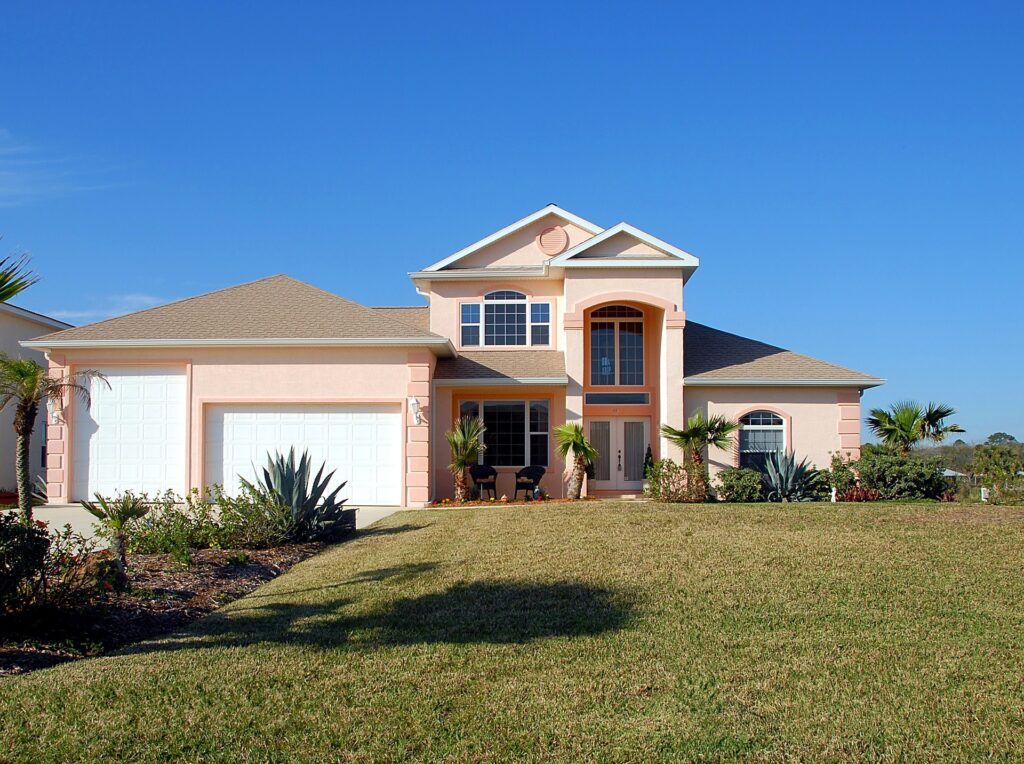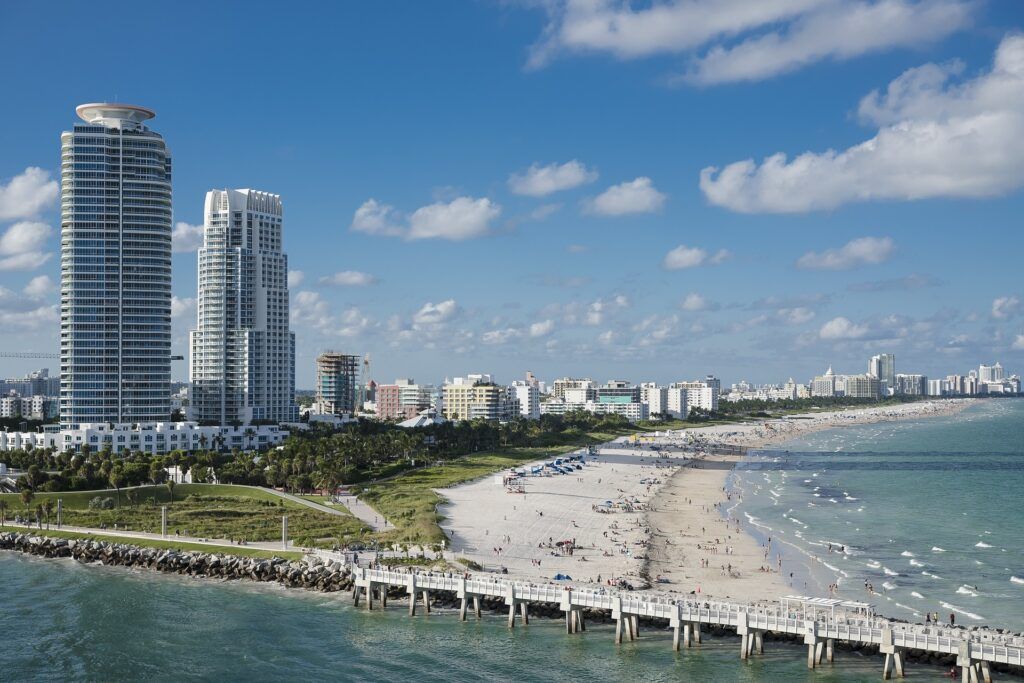- What is Included in Closing Cost For Buying a House in Florida?
- How Much Are Closing Costs In Florida?
- How To Calculate Closing Costs In Florida?
- Who Is Responsible For Closing Costs In Florida?
- What Are Seller's Closing Costs In Florida?
- How Much Are Closing Costs On An Fha Loan In Florida?
- How Long Does It Take To Close On A House In Florida?
- Do You Need A Lawyer For A Real Estate Closing In Florida?
- Consider a home in Florida
What are Closing Costs in Florida?
Click here to browse our Real Estate Agent Directory and contact top-rated agents in your area!
Closing costs are the fees that the closing agent charges when a real estate transaction is completed. These costs can vary depending on the location and the purchase price of the home.
In Florida, the average closing costs amount to about 5-10% of the purchase price. Usually, the seller and buyer each pay a portion of these costs. Some of the most common closing costs include:
- Loan origination fee: This is a fee that the lender charges to cover the costs of processing the loan.
- Appraisal fee: The appraiser will assess the value of the home and charge a fee for this service.
- Credit report fee: A credit report service charges a fee to pull credit reports needed for the buyer and the seller.
- Title search fee: The title company will search the public records to make sure that there are no outstanding liens or claims on the property.
- Recording fees: The county in which the property is located will charge a fee for recording the deed and other documents related to the sale.
- Prorated property taxes: The seller will be responsible for paying the property taxes up until the date of sale, and the buyer will be responsible for paying the taxes from that point on.
- Prorated homeowners insurance: The seller will continue to pay homeowners insurance until the date of sale, and the buyer will take over responsibility from that point on.
- Escrow account: An escrow account is a fund that is set up to cover the costs of taxes and insurance. The money for this account is usually collected from the buyer and the seller at closing.
Closing costs can add up to a significant amount of money. It’s important to budget for them when you’re buying a house. If you can’t afford to pay for them yourself, you may be able to negotiate with the seller. Depending on the housing market they may be willing to pay for some or all of them. Talk to your lender or real estate agent to learn more about the closing costs in your area and how you can prepare for them.
What is Included in Closing Cost For Buying a House in Florida?
Closing costs can vary depending on the location. Typically they include items such as title search fees, document preparation fees, and loan origination fees.
Loan Origination Fees
Loan origination fees are included in closing costs in Florida because they are a necessary part of the mortgage process. These fees cover the cost of processing your loan application, and they vary depending on the lender you work with. While they can add up, loan origination fees are generally a small percentage of the total loan amount.
In addition to loan origination fees, other common closing costs in Florida include title insurance, appraisal fees, and taxes. Title insurance protects the lender’s interest in the property and is usually required for all mortgages.
Title Insurance
The cost of title insurance varies depending on the size of the loan. It’s typically less than 1% of the loan amount. Appraisal fees are used to determine the value of the property. They can vary depending on the type of appraisal performed. Finally, taxes include both transfer taxes and documentary stamps taxes. The former is charged when a property changes hands, while the latter is assessed on the total value of the mortgage.
Title Search Fees
Title search fees are generally included in closing costs in Florida. This is because they are associated with the process of transferring ownership of a property. The title search company is responsible for verifying that the title of the property is clear and free of any liens or other encumbrances. This process can take some time, so the title search fees are generally charged to the buyer.
Other Closing Costs
Other closing costs in Florida may include fees for document preparation, notary services, and title insurance. The buyer is typically responsible for these costs, although they may be negotiated as part of the sale agreement. It’s important to know what to expect when closing on a house in Florida, so you can be prepared for the associated expenses.
In Florida, buyers are also responsible for paying the state’s documentary stamp tax on the sales contract. This tax is calculated based on the sale price of the house and is paid by the buyer.

How Much Are Closing Costs In Florida?
The state of Florida charges a documentary stamp tax on certain documents. This tax is usually included in the closing costs of a house. The money from this tax goes to several different places, including the school district, the county, and the state.
There are a few reasons why this tax is included in closing costs. One reason is that it helps to ensure that the person buying the house is actually able to afford it. It also helps to cover some of the administrative costs associated with transferring the title of the property.
In addition to the documentary stamp tax, there are other closing costs that you may have to pay when buying a house in Florida. These costs can include things like attorney fees, title search fees, and recording fees. It’s important to be aware of these costs before you buy a house, so that you can budget accordingly.
Other closing costs that may apply in Florida include transfer taxes, which are levied by the state and/or local governments, and mortgage taxes.
It’s important to budget for all of these closing costs when buying a house, as they can add up to several thousand dollars. By being aware of what to expect, buyers can plan accordingly and avoid any surprises at closing.
How To Calculate Closing Costs In Florida?
House buyers in Florida should expect to pay closing costs that range from 2% to 5% of the purchase price. Costs can vary depending on a number of factors, including the location of the property, the lender, and the real estate agent.
This means that on a home with a sale price of $250,000, closing costs could range from $5,000-$12,500.
Closing costs are incurred when the title to a property is transferred from the seller to the buyer. The costs can include fees for the title search, appraisal, and other services. They may also include charges for loan origination, document preparation, and insurance.
In Florida, buyers are typically responsible for paying the closing costs. However, in some cases, the seller may agree to pay a portion of the costs. If you are a buyer, it is important to discuss the closing costs with your lender and real estate agent so that you know what to expect.
Closing costs are an important part of the home buying process. By understanding what to expect, you can avoid any surprises and make the process smoother for everyone involved.
For more information about closing costs in Florida, please contact your local real estate agent or lender. They will be able to provide you with more specific information about the costs that apply to your situation.
Who Is Responsible For Closing Costs In Florida?
In Florida, the average closing costs are about $2,022. This includes costs such as loan origination fees, title insurance, and other miscellaneous closing costs. It’s important to be aware of these costs before you purchase a home, as they can add up quickly. By knowing what to expect, you can budget for them accordingly.
If you’re buying a home in Florida, be sure to ask your lender about the loan origination fee. This is a fee that’s charged for processing your loan. It typically costs between $500 and $1,500, but it can vary depending on the lender.
Another common closing cost in Florida is title insurance. This insurance protects the lender and the buyer in case there are any title problems with the property. The cost of title insurance varies depending on the value of the home, but it’s typically around $1,000.
There are also a number of other costs that can come up during the closing process. These might include recording fees, survey fees, and pest inspection fees. It’s important to be aware of these costs and have a budget in place for them.
What Are Seller’s Closing Costs In Florida?
In Florida, the closing costs for a seller can range from 2-5% of the sale price of the home. Some of the most common closing costs for a seller include:
- Real estate commission: This is typically 6% of the sale price of the home.
- Title insurance: This protects the seller in case there are any problems with the title to the property. The cost for title insurance can vary depending on the purchase price of the home and the coverage that is desired.
- Transfer taxes: These are taxes charged by the state and/or local government on the sale of a property. The amount of transfer tax varies depending on the location of the property.
- Property taxes: The seller is responsible for paying the property taxes up to the time of closing.
- Closing costs: This is a catch-all term for any other fees that may be associated with the sale of a property, such as attorney fees, document preparation fees, and more.

How Much Are Closing Costs On An Fha Loan In Florida?
How much are closing costs on an FHA loan in Florida? The answer to this question can vary depending on the lender, but there are some standard costs that are associated with any mortgage.
FHA borrowers are typically charged an up-front mortgage insurance premium (MIP) as well as an annual MIP. The up-front premium can be as much as 2.25% of the loan amount, while the annual MIP ranges from 0.45% to 1.05%, depending on the size of the mortgage and the borrower’s credit score.
In addition to these costs, other closing fees may apply. Lenders may charge a processing fee, a document preparation fee, and a funding fee. The processing fee is typically a flat amount, while the other two fees are usually expressed as a percentage of the loan amount.
Closing costs on a conventional mortgage can be higher or lower than those on an FHA loan, depending on the terms of the mortgage and the lender. For example, a lender may charge a lock-in fee or a late payment fee.
Buyers should be sure to ask the lender about all of the closing costs associated with the loan so that there are no surprises at settlement.
How Long Does It Take To Close On A House In Florida?
The process of buying and selling a house is often long and complicated. When it comes to closing on a house in Florida, there are a number of things that need to be taken into account. In this article, we’ll take a look at the various factors that influence how long the process will take.
First and foremost, the closing costs in Florida will vary depending on the property’s location. Generally speaking, the closer to a metropolitan area you are, the higher the closing costs will be. Additionally, if there is a preponderance of luxury homes in the area, the closing costs will also be higher.
Several other factors can influence how long the closing process will take. For example, if you are buying a home, the lender may want to complete a full inspection of the property. This can add an extra few days to the timeline. Additionally, any title issues with the property will need to be sorted out before the sale can go through.
Overall, the closing process in Florida can take anywhere from a few days to a few weeks. It’s important to be aware of all the factors that can influence the timeline so that you can plan accordingly. Knowing what to expect allows you to avoid surprises down the road.
Do You Need A Lawyer For A Real Estate Closing In Florida?
Although it is unnecessary, it is definitely within your rights to have a lawyer represent you during a real estate closing in Florida. Most buyers, however, opt to work with their real estate agent as they are experienced in working with clients in the closing process. They can help ensure that the closing goes smoothly and that all of your interests are protected. They can also answer any questions you may have about the closing process.
One of the things that your realtor may advise you on is what the closing costs will be. This will vary depending on the location and the purchase price of the home, but generally, there are a few standard costs that you can expect to pay. These include title insurance, recording fees, and closing fees.
Title insurance protects you from any losses that may occur as a result of title defects. This can include anything from unpaid taxes to forged signatures on the deed. The cost of title insurance will vary depending on the value of the property, but it is typically a small percentage of the purchase price.
Consider a home in Florida
Are you considering buying a home in Florida? If so, be sure to contact an experienced real estate agent who can help you through the closing process. Browse agent profiles and read reviews for your area here.





